Nettles are the larval food plant for several British butterflies such as the small tortoiseshell, red admiral and peacock.
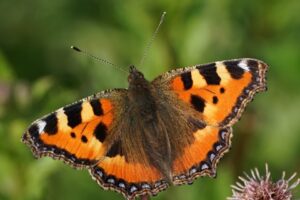
Small tortoiseshell
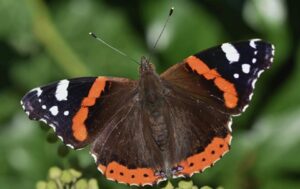
Red admiral
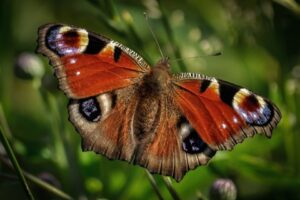
Peacock
However, butterflies are very fussy about where they lay their precious eggs and will only use nettles if they are in a sunny position. They also seem to prefer a large patch rather than small, isolated clumps.
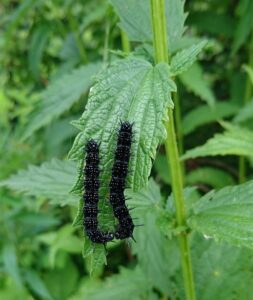
Peacock caterpillars on nettle leaves
If you do not have the space to have a large patch in full sun it doesn’t mean that your nettles are not valuable as a habitat; there are many insects that use them. Whenever I am sampling in our school grounds, I will always sweep net the nettles because I know I will be rewarded with a good haul of insects.
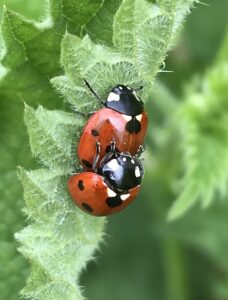
Ladybirds on nettles
If you do have enough space for a large nettle patch in full sun, make sure you have a clear boundary such as a line of logs, so that you can prevent spread of the nettles to other areas. This time of year is a good time to remove nettles that have sprung up where you do not want them. Go out after rain, when the ground is still wet, and the nettles can be removed fairly easily (this is also a good time to remove hog weed). Nettles love nitrogen-rich soil so at this time of year we clear overgrown vegetation and add the cuttings to the nettle patch. I also cut back the nettles and remove brambles and other plants that will lead to our nettle patch becoming scrub.
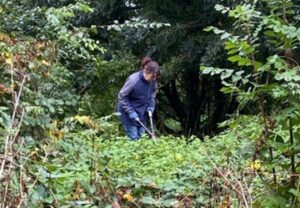

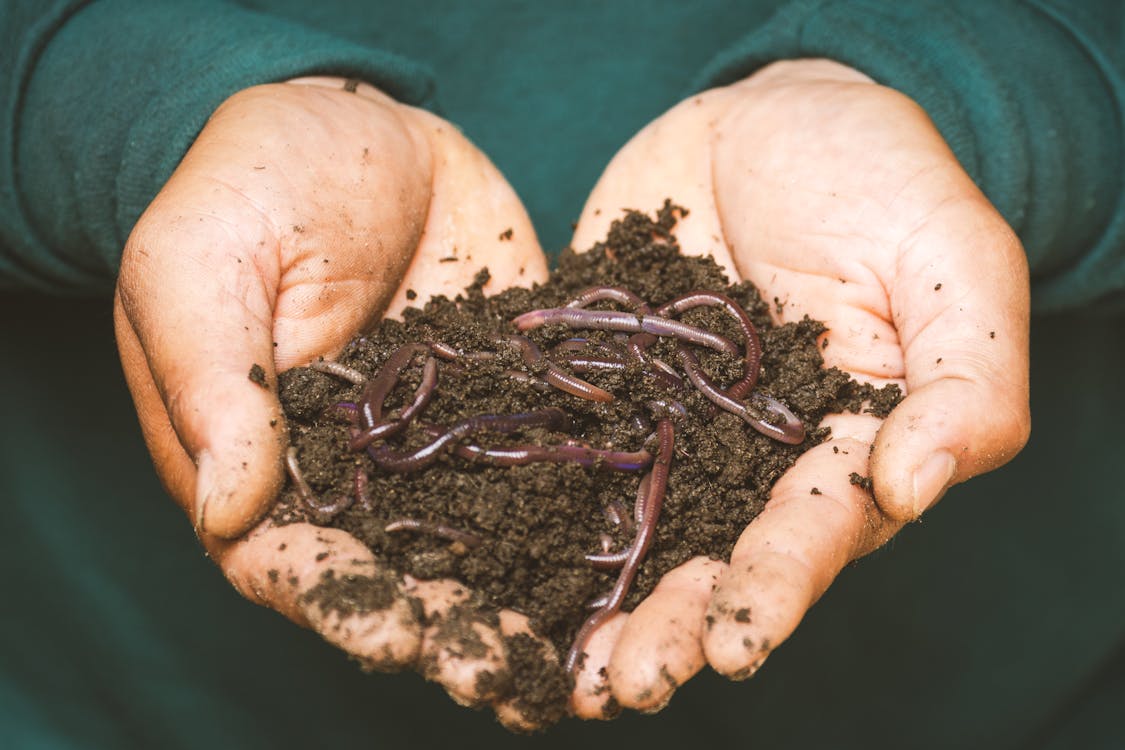

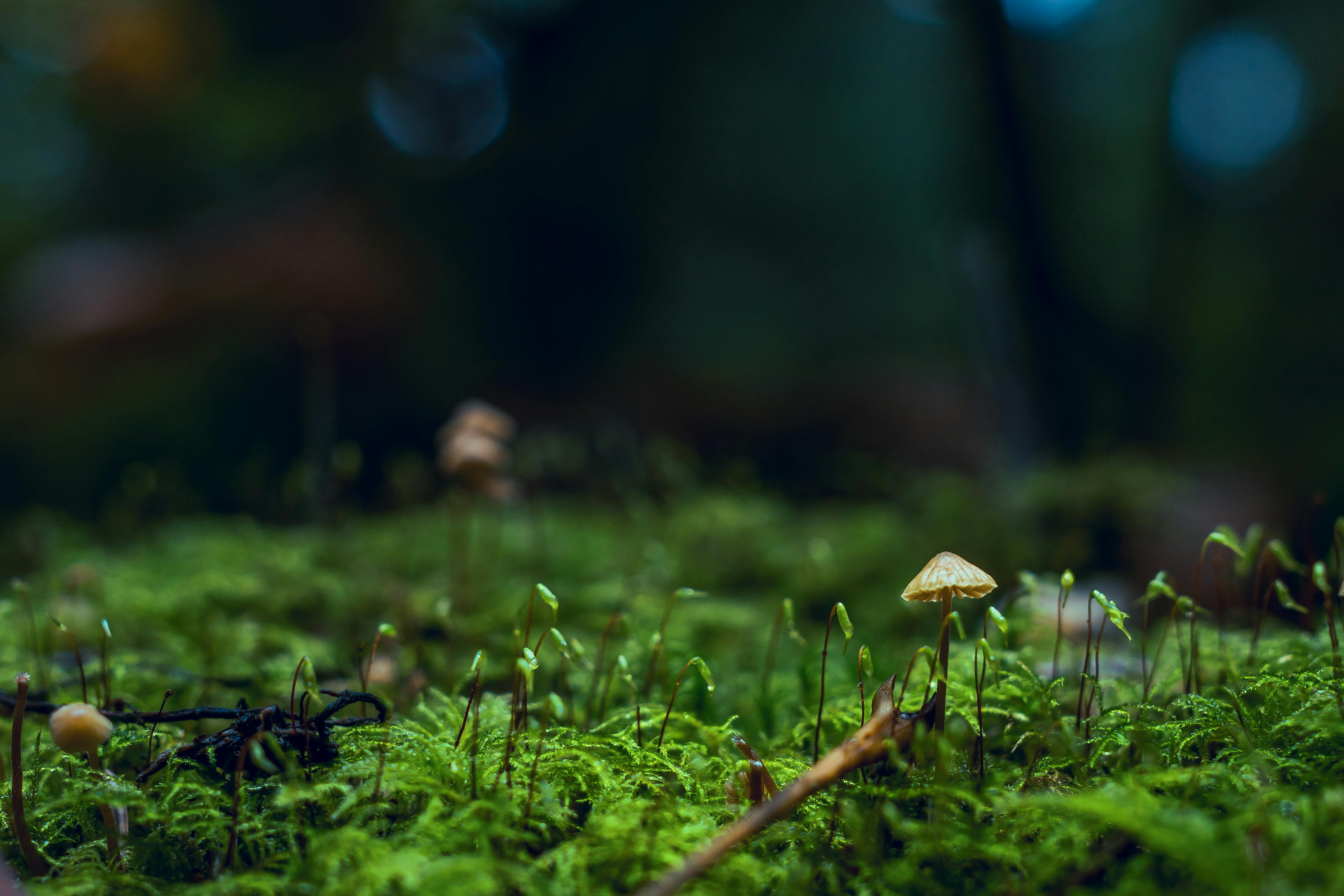
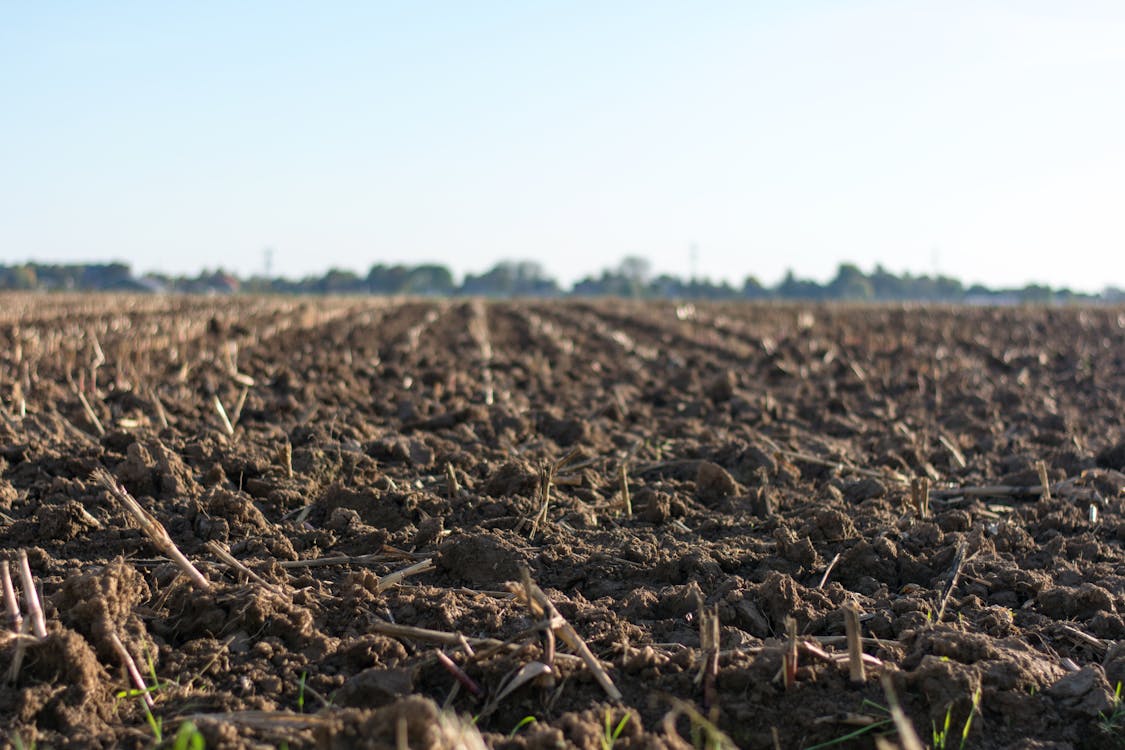
0 Comments